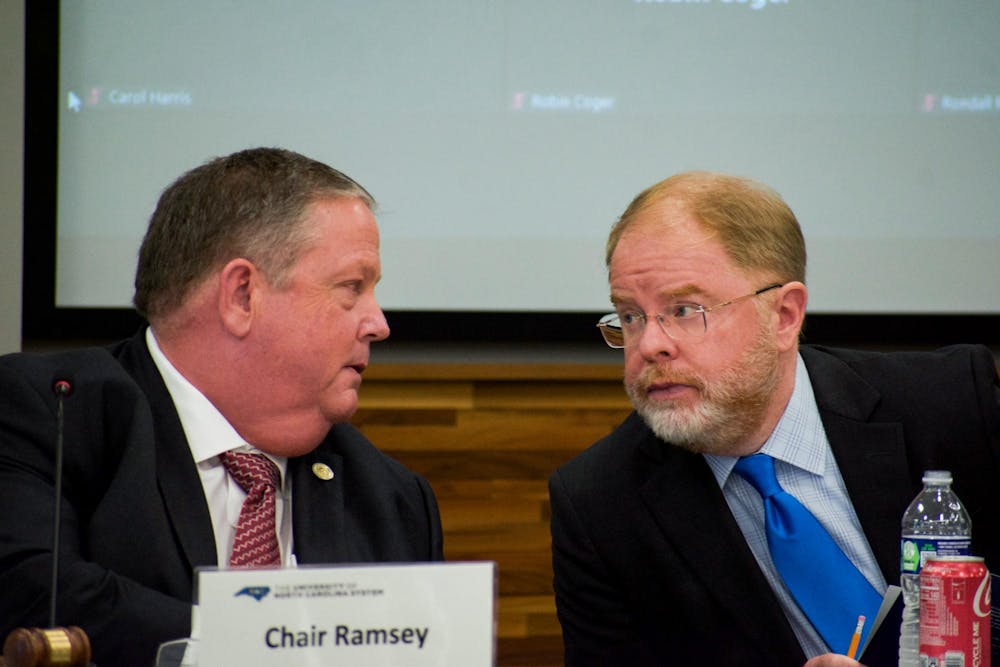The UNC System Board of Governors announced system-wide Diversity, Equity and Inclusion cuts during their Committee on University Governance meeting Wednesday morning. UNC-Chapel Hill leads the system for the most DEI positions eliminated.
According to a chart presented at the meeting and Andrew Tripp, Senior Vice President and General Counsel in the Office of Legal Affairs at the BOG, UNC eliminated 20 positions, realigning 27, in accordance with the repeal of UNC System DEI policies this May.
Tripp also announced that 5.3 million dollars will be redirected away from DEI initiatives at UNC.
“As we all know, UNC Chapel Hill typifies our larger campuses' responses,” Tripp said. “It's required. Its compliance is required, eliminating dozens of positions.”
UNC’s “Equality Within the University of North Carolina” report, signed by Chancellor Lee Roberts and Provost Chris Clemens on July 30, details seven eliminated positions in the Universities central administration, including the Vice Provost for Equity and Inclusion and Chief Diversity Officer, along with six other positions within the University DEI office.
Eliminated positions also include 12 roles within the School of Education, School of Information and Library Sciences, the School of Medicine, the Adams School of Dentistry, the Gillings School of Global Public Health and the Eshelman school of Pharmacy.
Programmatic changes include the elimination of DEI offices in specific schools including the Kenan-Flagler Business School, the School of Medicine and the School of Pharmacy.
Specific positions have been realigned, such as the College of Arts and Sciences’ Senior Associate Dean for Diversity, Equity and Inclusion, which is now working under the title of Senior Associate Dean for Faculty and Staff Development. Instead of guiding DEI matters, the position will now focus on supporting professional and leadership development and mentoring.
The report also stated that “centers that had DEI committees or workgroups have confirmed that they either no longer meet, have been formally ended, or have transitioned to other work.”



